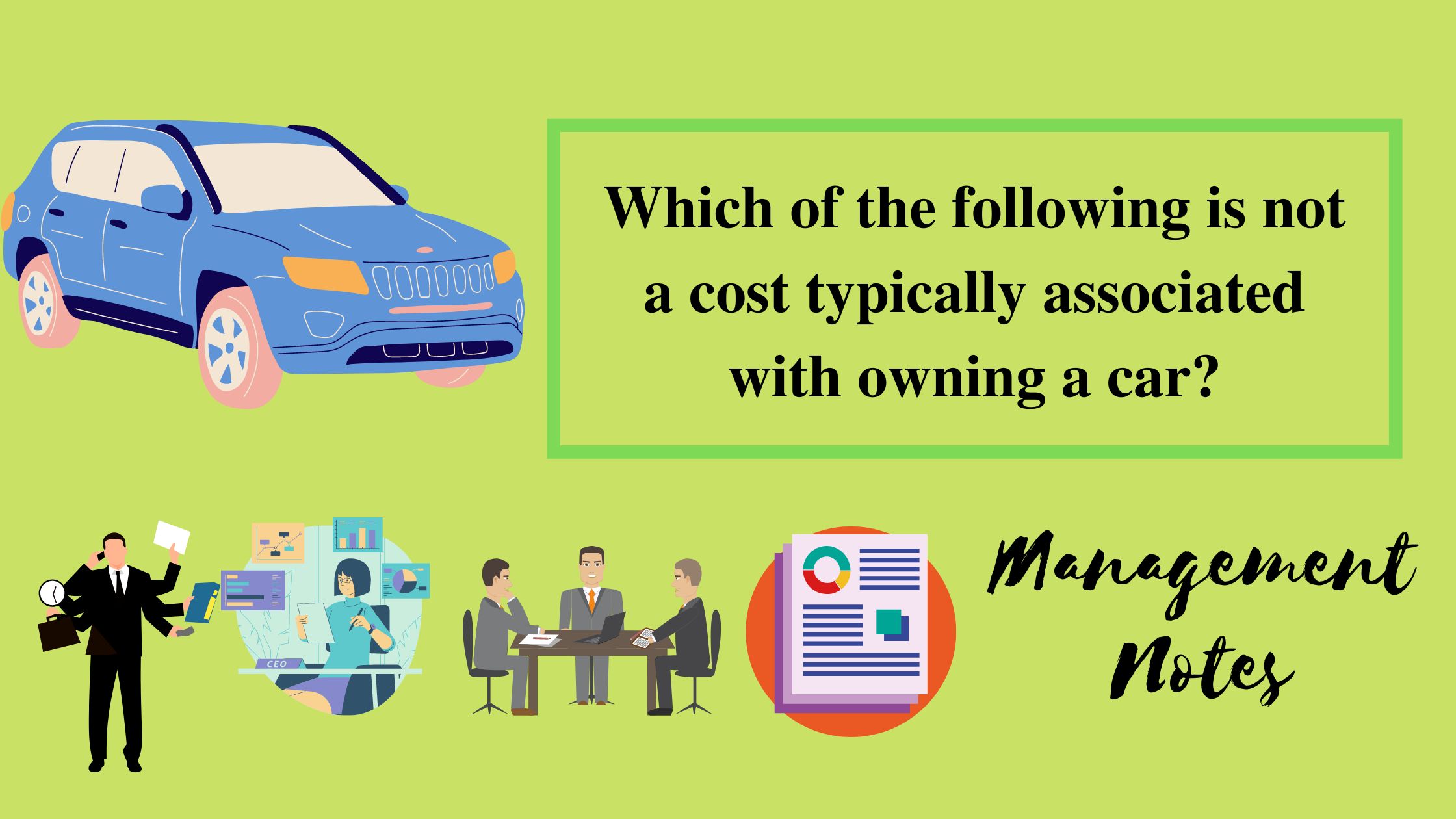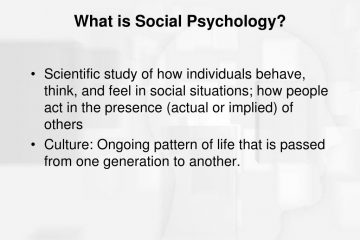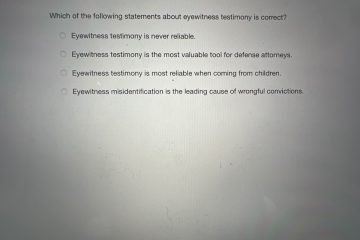Which of the following is not a cost typically associated with owning a car?

Which of the following is not a cost typically associated with owning a car?
A. Fuel.
Elevate Your Writing with Our Free Writing Tools!
Did you know that we provide a free essay and speech generator, plagiarism checker, summarizer, paraphraser, and other writing tools for free?
Access Free Writing ToolsB. Insurance.
C. Wear and tear fees.
D. Maintenance.
Answer; C. Wear and tear fees
Explanation
Wear and tear is not usually associated with owning a car because it’s associated with the normal aging of the vehicle. You should also be aware that the warranty that manufacturers give does not compensate for wear and tear. Instead, the warranty that they give compensates for dents, scrapes, and scratches.
As the learning progresses throughout the semester, some students face a tough time understanding some of the economics concepts and getting answers to their economics questions and tests. At this juncture it is best to hook yourself with a reputable college economics homework help that will guarantee you good grades.
Gudwriter is an authentic online economics help that gives you the reason as to why you should study economics for they are available 24/7 to ensure that your economics homework help needs are catered for. Our pool of experienced tutors are ready to help on any economics related topics that you are having a hard time understanding.
Typical Costs of Owning a Car
There are two types of costs associated with owning a car. They include fixed costs and variable costs.
- Fixed Costs
Fixed costs are the costs of owning a car that do not change no matter how often you use your car. Some of these fixed costs include:
1. Depreciation – The loss in value of a car due to wear and tear. Depreciation is the largest cost associated with owning a car. This is because as soon as you drive your new car off the lot, its value begins to decrease through wear and tear or depreciation.
2. Car Acquisition: – The initial costs of acquiring a car. This includes the down payment, trade-in of old vehicles, and acquisition fee. This cost is usually quite high for the first few years that you own a car. The value of this cost will decrease over the life of your car until it matches depreciation.
3. Insurance – This is the cost you pay to compensate for damage that may occur to your car. A typical insurance policy will pay for damages caused by collisions, weather, and other such events.
4. Cost Of Capital: – This is the interest you pay on the money you borrow to buy your car. This cost is not usually very high because the amount of money borrowed to buy a car is usually low.
5. Driving License: – The cost of getting your driving license. These costs can be quite high in some countries.
6. Loan Costs– The costs associated with borrowing the money to buy your new car. These costs are usually quite low, but you will pay this cost regardless if you borrow money or get a loan.
- Variable Costs
Variable costs are those costs that change with your usage of your car each year, such as fuel and maintenance. They include:
1. Maintenance
The cost of maintaining a car is determined by the type of car you have. The maintenance costs will vary from car to car based on the make, model, years, and condition of your vehicle.
2. Fuel
The cost of fuel is also variable because it changes a lot based on the supply and demand situation in different areas. Therefore the price of gasoline makes up a very large portion of the cost of owning a car in most countries around the world.
3. Parking
The third variable cost is the price of parking in different areas. Parking fees differ across different areas because of high demand and/or a limited supply, which causes the prices to rise, or low demand and/or a high supply which causes parking lot owners to lower prices.
4. Car washes
The cost of washing a car depends on the type of car. This is because some cars are more difficult to wash than others since you get into and out of the vehicle each day.
Related Economics Questions
- Which of the following payment types require you to pay upfront?
- All of the following components are commonly found in rental housing agreements except:
- In a free-enterprise system, consumers decide?
- Which of the following types of financial aid do not require you to pay the money back?
- What is one benefit of purchasing saving bonds?
- Which of the following is a unique feature of credit unions?
- Which helps enable an oligopoly to form within a market?
- All of the following make up the big three credit reporting agencies except:
- Which statement is not true regarding a straight life policy?
- Which of the following is an example of derived demand?

Special offer! Get 20% discount on your first order. Promo code: SAVE20


